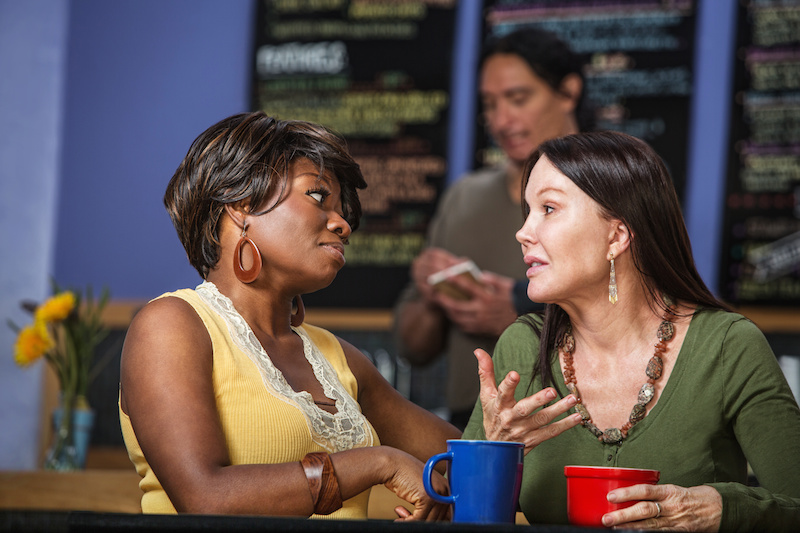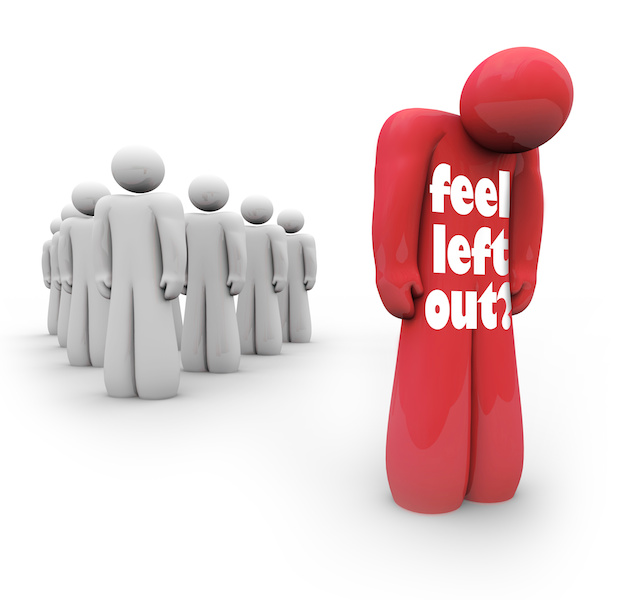8 Reasons Not to Trust Your Best Friend During Your Divorce
Divorce dumps you onto a ferocious emotional roller coaster. Be forewarned: your best friend may be your worst nightmare to ride beside you.
Observe:
In the midst of mediation, Emily got a call from her BFF, Denise. “Checking in,” Denise said. “How’re you doing and how’s Pedro doing?”
Emily was at the end of her rope – no sleep, depressed, lonely and scared. Pedro was pushing for more money. Emily was caving. She felt a tinge of anger that Denise asked about Pedro.
Emily’s response: “OMG, Pedro’s out for blood. I really need to talk to you. You need to know the truth. I guess 30 years together doesn’t matter? I hate him, Denise!”
Emily and Pedro couldn’t settle in mediation. Their case went to court. To Emily’s shock, Denise appeared as a witness for Pedro.
 Betrayal
Betrayal
It happens too frequently. The “friend” you thought you could trust betrays you, and – bam – you’ve been slammed in the belly. It’s not always as dramatic as witnessing against you, of course. It might be as little as not keeping your confidence.
Here’s the deal: your friends are human like the rest of us. We all have our own monkeys on our
backs – our own issues – no matter how close your friendship is. Sometimes, the better you know someone, the more “stuff” gets in the way of listening, helping, and keeping your secrets. It happens to best friends all the time.
I believe it’s never pre-meditated. Your friend isn’t intentionally hurting you. Under the surface, however, friends have their own drivers that cause them to double-cross you, unwittingly.
Nonetheless, the pain of that deception can take years to heal. Take a look at these unconscious reasons for disloyalty to you:
- Jealousy. You’re now competition.
- Threatened. Their marriage is shaky and the guts to end yours is intimidating.
- Judging. “You should stay. He’s a good man.” They don’t want to hear facts – they just want to be right.
- No life. Your drama is their Downton Abbey, and they crave the thrill of watching it all come down.
- Stressed, too. They resent the spotlight on you when they are struggling with their own set of problems.
- Projection. They give advice based on their own divorce. It worked for them so surely it’s right for you.
- Clueless. They have no idea what it’s like for you. They decide how to help based on learning from The Good Wife.
- Well meaning. They started off strong, promising to “be there” for you no matter what. As time goes on, they back off because the burden is too much.
How To Avoid Betrayal
Don’t take it personally. It’s not about you. They’re doing what people do: their stuff is more important than yours, and they act without thinking of the profound repercussions for you.
Never use your friends as a primary source of advice or trust during a divorce or breakup.
OK, I can hear your push-back, but believe me, confiding in someone too close can come back to bite you.
Find a sounding board and get advice outside your circle of friends. Invest in a divorce recovery professional who specializes in keeping you sane throughout the process, and can listen and advise objectively. Ask your lawyer for a referral.
If you can’t afford a coach/therapist, a spiritual leader may be your best bet. Also consider joining a group of others going through divorce for support and understanding.
In any case, shrink your circle of trusted advisers until the divorce is over. Ask yourself: does this person have the necessary skills and time available to devote to me during this crazy roller coaster I’m on? If not, ensure that the friendship will be in place on the other side by sharing harmless selected shorts about your divorce/breakup. Please don’t allow your friend to become a full blown confidante. Save that for the pros.
Of course, I’m not saying don’t tell your friends anything. I’m saying be careful. By not burdening them with all the gory details right now, you’re ensuring a friendship that will long outlast the divorce or breakup.

 Tragically, no one teaches us how. We are taught to offer solutions, instead. Why? Our society values action and results, logic rather than emotions. A logical solution masquerades as an escape from emotional pain. The well-meaning friend thinks: “If I offer reassurance and a plan, she’ll feel better.” Not necessarily true. Of course, no one wants to watch her friend cry. It’s uncomfortable and painful for everyone. We want to kiss it and make it better.
Tragically, no one teaches us how. We are taught to offer solutions, instead. Why? Our society values action and results, logic rather than emotions. A logical solution masquerades as an escape from emotional pain. The well-meaning friend thinks: “If I offer reassurance and a plan, she’ll feel better.” Not necessarily true. Of course, no one wants to watch her friend cry. It’s uncomfortable and painful for everyone. We want to kiss it and make it better. They tell me about their forthcoming trip to Europe. I tell them how much fun they’re going to have. We finish the meal. I call Uber, go home, cry hard, and fall dead asleep.
They tell me about their forthcoming trip to Europe. I tell them how much fun they’re going to have. We finish the meal. I call Uber, go home, cry hard, and fall dead asleep.